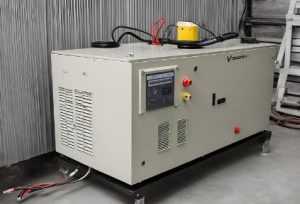Understanding Voltage Regulators for Computers
When setting up or upgrading a computer, one might wonder about the necessity of a voltage regulator. This question arises from concerns about the stability and safety of the computer’s power supply. Voltage regulators are devices designed to maintain a constant voltage level to electronic components, ensuring they operate within safe parameters. This article will delve into the importance of voltage regulators, their functions, and whether you need one for your computer.

What is a Voltage Regulator?
A voltage regulator is an electronic device that maintains a constant output voltage regardless of changes in input voltage or load conditions. It ensures that the voltage supplied to electronic components remains stable, preventing damage due to voltage fluctuations. Voltage regulators are commonly used in various applications, including power supplies for computers, automotive systems, and consumer electronics.
Types of Voltage Regulators
Linear Voltage Regulators
Linear voltage regulators are simple devices that use a voltage divider network to maintain a constant output voltage. They are known for their ease of use and low noise generation. However, they are less efficient than other types of regulators because they dissipate excess power as heat.
Switching Voltage Regulators
Switching voltage regulators, also known as switch-mode power supplies (SMPS), use high-frequency switching to convert input voltage to the desired output voltage. They are more efficient than linear regulators because they minimize power dissipation. However, they are more complex and can generate electromagnetic interference (EMI).
Buck and Boost Regulators
Buck regulators step down the input voltage to a lower output voltage, while boost regulators step up the input voltage to a higher output voltage. These types of regulators are commonly used in applications where the input voltage can vary significantly, such as battery-powered devices.
Why Voltage Regulation is Important for Computers
Computers are sensitive to voltage fluctuations, which can cause various issues, including data corruption, hardware damage, and system instability. Voltage regulators play a crucial role in ensuring that the power supplied to the computer’s components is stable and within safe limits. Here are some reasons why voltage regulation is important for computers:
Protecting Sensitive Components
Modern computers contain numerous sensitive components, such as CPUs, GPUs, memory modules, and storage devices. These components require precise voltage levels to function correctly. Voltage fluctuations can cause these components to malfunction or become damaged, leading to costly repairs or replacements.
Ensuring System Stability
Stable voltage levels are essential for maintaining system stability. Voltage fluctuations can cause the computer to crash, freeze, or behave unpredictably. By providing a constant voltage, voltage regulators help ensure that the computer operates smoothly and reliably.
Preventing Data Corruption
Voltage fluctuations can lead to data corruption, especially during read/write operations on storage devices. A stable voltage supply helps prevent data corruption, ensuring the integrity of the data stored on the computer.
Do You Need a Voltage Regulator for Your Computer?
The need for a voltage regulator for your computer depends on several factors, including the quality of your power supply unit (PSU), the stability of your mains power, and the specific requirements of your computer components.
Quality of Your Power Supply Unit (PSU)
A high-quality PSU typically includes built-in voltage regulation features to ensure stable power delivery to the computer’s components. If you have a reliable PSU from a reputable manufacturer, you may not need an additional voltage regulator. However, if you are using a low-quality or generic PSU, it may lack adequate voltage regulation, making an external voltage regulator necessary.
Stability of Your Mains Power
The stability of your mains power supply can also influence the need for a voltage regulator. If you live in an area with frequent power fluctuations, brownouts, or surges, a voltage regulator can help protect your computer from these issues. In such cases, an uninterruptible power supply (UPS) with built-in voltage regulation can be a good investment.
Specific Requirements of Your Computer Components
Some high-performance computer components, such as overclocked CPUs or GPUs, may have specific voltage requirements. In such cases, additional voltage regulation may be necessary to ensure stable operation. Enthusiasts and professionals who push their hardware to the limits often use dedicated voltage regulators to achieve optimal performance and stability.
Conclusion
In summary, whether you need a voltage regulator for your computer depends on the quality of your PSU, the stability of your mains power, and the specific requirements of your computer components. High-quality PSUs typically include built-in voltage regulation, making additional regulators unnecessary for most users. However, if you experience frequent power fluctuations or use high-performance components with specific voltage requirements, a voltage regulator can help ensure stable and reliable operation. Investing in a UPS with built-in voltage regulation can also provide added protection against power issues, safeguarding your computer and data.